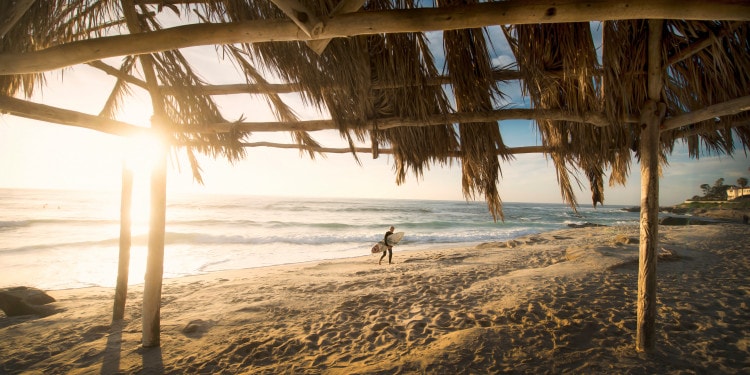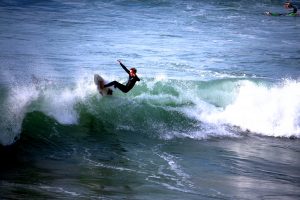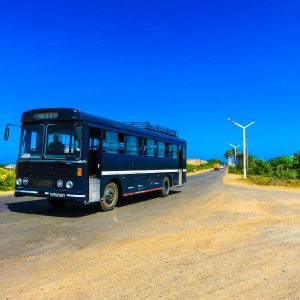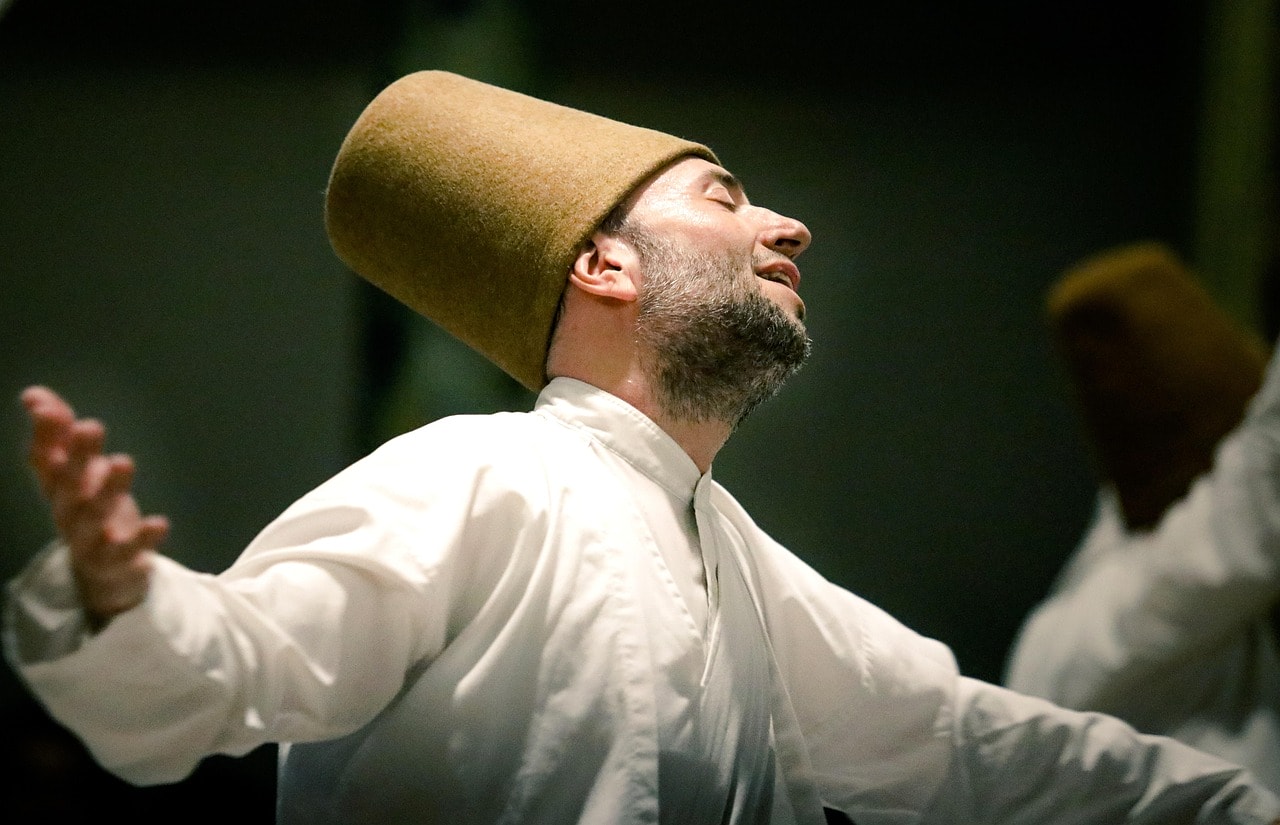“Mike, she finish,” he says. His voice barely audible and downbeat as it always is, but now it also carries a hint of disbelief. I knew that he meant she was dead, but partly not knowing what to say and partly because I needed to say something, I respond over the scratchy mobile connection, “What? Daniel, what do you mean?”
“Elvira. She dead. She stop breathing. We go home to village now. I go. Funeral in two days.”
A young girl dies
Daniel, a local man from the single street village behind and up the hill from Sorake beach, was Elvira’s father. He kept a house up in the village but his family spent most of their days at a tiny wooden one room hut about fifty metres back from the famous surf beach in Nias, Indonesia. In front of the hut, on the beachfront, he had constructed accommodation for tourists for whom his family cooked and cleaned. I am not one of those tourists, choosing instead to live in a converted bus that I call home, a little further along the beach front.
PHOTO CREDIT: Pexels
A few weeks before that terrible phone call, I met Daniel and his family. I had followed his faded surfboard repair sign which led me to his heavy and clumsily built front door. After a few minutes of talking to him about the needed fin repair, I abandoned any thoughts of negotiation. I chose to respect his price and inadvertently him as well. I met his wife and two daughters during that first encounter, all three of them emerging from the tiny earthen floored abode to observe the tourist.
After that first day, I’d see Daniel, his lovely and loyal wife and his daughters every day. They’d be milling about their tourist bungalows attending to this or that. His wife, Mamma Martin, was generally withdrawn but always threw me a genuine smile, perhaps appreciative that I brought them some business with my board, perhaps just because I seemed to be sticking around longer than most of the other surfing folk. Sometimes in the afternoon, I’d stop in at their house and share a beer with Daniel, his wife would always sit herself quietly somewhere nearby, Elvira would be diligently doing her schoolwork and Gabrielle, the younger of the two, would be flitting about the place, showing off her mastery of English with me, even while aside from her, we all preferred to speak in Indonesian.
Those days passed slowly. By that I don’t mean in a tiresome way, but everything just happened slowly. Nobody was in a hurry to do anything in particular, there was not actually anything to do, except surf and cater for surfers. Island life was what it was; a tourist needing a fin fixed was considered a notable event; a tourist popping in for a visit was considered a highlight. In some ways, I would have liked there to be no more events of note, but that didn’t turn out to be the case.
PHOTO CREDIT: Pexels
Walking back from an afternoon surf, back from where the waves had collapsed into white water and it was safest to get out of the sea and tippy toe as if on hot sand across the barnacled and exposed part of the reef, one such event started to unfold. As Daniel’s bungalows and his beaten up old beach shack came into view I could see him standing on his front porch. He saw me at the same time and then hurried from his lookout to come and meet me.
“Mike. Mike, I need your bus, can you drive us to the big town?” he said nervously.
“Of course, why, what’s up?” I said as I came down quickly from my surfing high.
“Elvira, she very sick.”
He led me inside, and I realised how truly tiny this dwelling was. It was one room only, with two mosquito netted beds, Elvira on one which was closest the entryway. There was nothing else in the house except a small table with a gas cooker on it, and some pots and pans hanging off hooks on the rough timber wall behind it. A curtain covering the front of the table probably hid plates and glasses and the like. I wondered where they bathed, or went to the toilet even. Daniel pulled back the netting and Elvira, who’s eyes and mouth would normally smile and who normally would have something to say, did not even roll her eyeballs towards me. In her underwear, her eleven-year-old body was shining with a greenish sweat, her eyes, open but misty and dead, just tiredly looked up to some uneventful space above her, and she made no reaction at all to our presence or to anything that was said.
“She need go to hospital,” Daniel said, “she very sick, she been like this two days.”
“What is it, what’s wrong with her?” I asked
“I don’t know, I think black magic,” he responded as Mamma Martin slowly nodded towards the floor in agreement with the diagnosis.
“Black Magic? What are you talking about, has she got fever, diarrhoea?”
“It’s black magic Mike, she very sick.”
He went on to explain that she was having lots of troubles with her classmates. She was a brainy kid and it was generating a lot of jealousy and even hatred towards her. Daniel told me more about it as we drove to the big town, Telukdalam, the second biggest on the Sumatran island of Nias. Elvira and Mamma Martin bounced around in the back of the bus on my bed, Elvira more so with no ability to control her weak body, as I trundled in and out of giant pot holes. Mamma Martin tried to constrain her but her hands were over-employed with also controlling their clothing, bedding, food and cooking equipment that they would need in the hospital. They would all stay there overnight, on the floor if there was no bed. Daniel went on to tell me that he wasn’t sure how, but somehow as a result of this hatred against his daughter one of the other families from the village had conspired to cast a spell over Elvira, and that he was sure that the doctor at the big town’s decrepit hospital would agree.
PHOTO CREDIT: Pexels
We arrived at the hospital in the big town after about half an hour and at about the same time that the electricity stopped arriving there. Another of the frequent Nias blackouts had hit, almost as if in collusion with the black magic, and everything except life support systems, which would run off the generator, went dead. Two hospital staff emerged as we parked in the emergency bay. They wore white coats which gave me some assurance and together with Daniel carried Elvira’s limp body inside. Mamma Martin asked if I could go out again and find some candles and some fried rice as she would not be able to cook now that the power was out. Taking note of this and a few other bits and pieces she needed for a night in hospital with no power, I was hit by the sadness, the defeat in Mamma Martin’s face. Her sad eyes had no doubt lived through many misfortunes such as these, in a place that has so little of the things that I would normally take for granted. She was terribly sad, but she remained functional, she had to function for her daughter. She didn’t have the luxury of sadness.
When I returned, Daniel came out to meet me and took the plastic bag of supplies. He said, “Don’t have proper doctor here, they do what they can, give her medicines. They think she has blood poisons. They say like me. Is black magic. She need good doctor in Medan.”
Medan is the closest reasonable sized city, perhaps two hours of driving and then an hour’s flight away from where we were. I could detect pleading in his voice, inviting me to offer to pay for an excursion to Medan.
“What can I do Daniel, what can I do now to help?” selfishly hoping he didn’t hit me up for the cost of airfares to and accommodation in Medan.
He paused a few tense seconds and then said, “It’s ok Mike, you go now, I call you tomorrow.”
We hugged “Ok. Call me for anything you need, Daniel.”
To not succeed, does not make failure
That was yesterday. And now he has called me. But he needs nothing. His daughter is dead. He hangs up the phone. Aside from the total shock, the shock that this illness or black magic as he called it, was so serious and the deterioration of Elvira so quick, I think about his voice. There was that something different about his voice. Then I realise that it wasn’t disbelief that I heard in his voice. It was failure. I detected in his voice that he felt he had failed, he had failed Elvira, failed as a father.
Related article: “EVOLVE, YOUR SPECIES NEEDS YOU“
His daughter has just died and I respect that he will be a mess now and for some time to come. But I hope he doesn’t consider that he failed her in any way. Folks tend to resort to that conclusion, that they have failed or that they are a failure far too commonly. Perhaps one could argue that the economic, social or medical system failed them as it was potentially on their account that little Elvira had such a short life. Perhaps it was I that had failed them all. Had I responded to Daniel’s guarded plea to go to Medan, maybe things would have been different.
Daniel and Mamma Martin did not fail Elvira. They were loving parents and for her eleven years all the way to the unhappy end, they gave all that they knew how to give. There was love, joy and growth. Nor was Elvira’s life itself a failure just because it ended at eleven, it just ended. There is no mandate to live until the age of eighty and die in your sleep, in order to comprise success of a life or in being a father. This concept of failure too often refers to the very end point of something and ignores all that came before it.
Failure is not defined by the end result
Too much importance is attached to the final outcome…
We generally like to say that something has failed and someone is a failure in doing something, if the end result, the very distinct and finite thing at the end of the experience is not as was initially conceived. If that’s the definition, and I think it commonly is, then I have to say that I think failure with a negative connotation is overrated. I think failure can be quite a positive thing as it implies that something was started at the very least. It may mean that there was a lot of growth, learning and success all the way along but just at the very end the desired result was not as one first thought it would be. So, failure as term for me has a neutral tone, it can be positive or negative. A definitive end result is often defined in order to pull one through an entire experience, with the experience from beginning to end being what was in fact desired. Too much importance is attached to the final outcome, as against to the process.
I’ll venture further, and say that failure, often for me, turns out to be a good thing. If I only did things that I knew had a good chance of success, in terms of the final desired result, then I wouldn’t be taking many risks in my life, and probably wouldn’t be attracting much personal growth. Even by attempting things that come with a guarantee of the end result being a failure, with each failure I am learning and getting once step closer to success.
Life is about experiments and risks
I see my own life as just a series of experiments or games. I sit around and muse about what might be an interesting experiment or a fun game to play, and then that becomes my purpose. I don’t see some overarching life purpose, I see many, and I am the creator of them. I usually have no clue about the chance in terms of any end goal I might set, but I set one anyway, and then play the game. Often my inspiration comes from a future self. I project five years into the future, look back at my current self and ask, am I happy with my lot? Would I be proud of myself if I stayed on the course my current self was on? If the answer is no, then I simply set a new course, decide on a new experiment that is more aligned with my future self’s ideas about how to live and who I want to be.
But what was the worst-case scenario?
Often this involves an element of the risk, but more often than not, that risk is not real. For instance, one of the experiments I am deep into as I write today, is an experiment in escape. In this experiment, which started in June 2015, I decided to leave work and consumer society and live a simple, nomadic life. There were plenty of perceived risks in terms of leaving a good income, stability and security. But what was the worst-case scenario? The worst-case scenario was the life I was already living at that time. I was working sixty hour weeks under fluorescent lights, was highly stressed, and was not a happy chap. The experiment, as it seemed, had no downside at all that I could see. So, the experiment got the green light. And so far, so good.
Without being overly conscious of doing it, I have been living a life of mostly failed experiments that have been very rewarding and crucial to my growth and to my happiness. Prior to my current experiment in escape, which was executed very consciously and which already I deem a success on so many levels, I undertook three prior escape attempts. Each one of them failed in the end, in that the system recaptured me and it was back to the fluorescent lights, but each was a heck of a lot of fun. Each one of those three experiments resulted in about one year of living as an escapee in Latin America, a topic I shall write about in due course.
My friend Daniel’s experiment in creating life and bringing Elvira into the world of course came with risks. Consciously or not he took that risk, and he had an amazing daughter, who’s life, albeit short, was full of joy. So, life is the lab, and each of us are our own mad scientists. In the face of possible or even probable failure, go forth and experiment!
Recommended reading: “A DELIGHTFUL INSPIRATION: PHOTOGRAPHY WITH MARK CLINTON“












